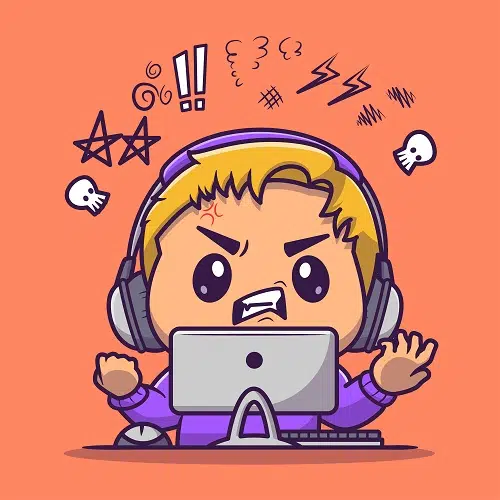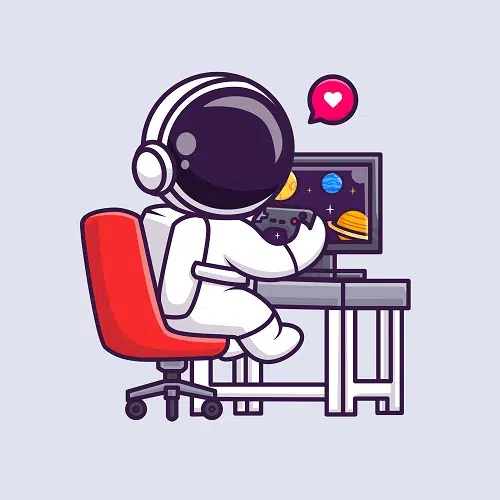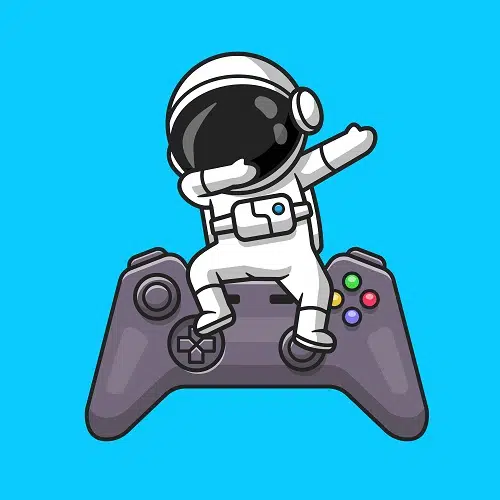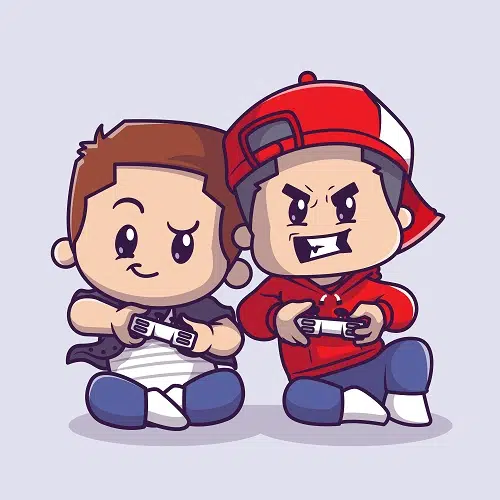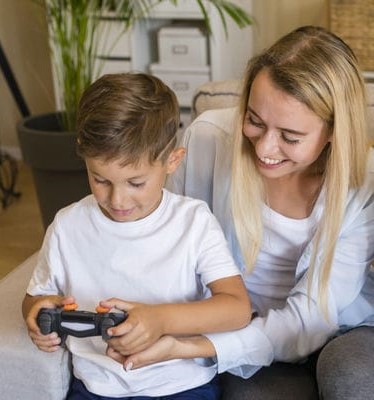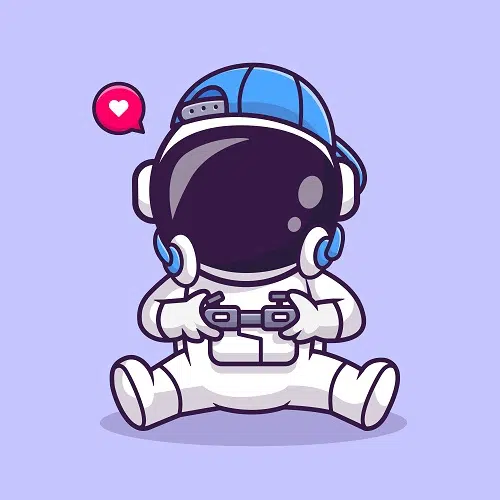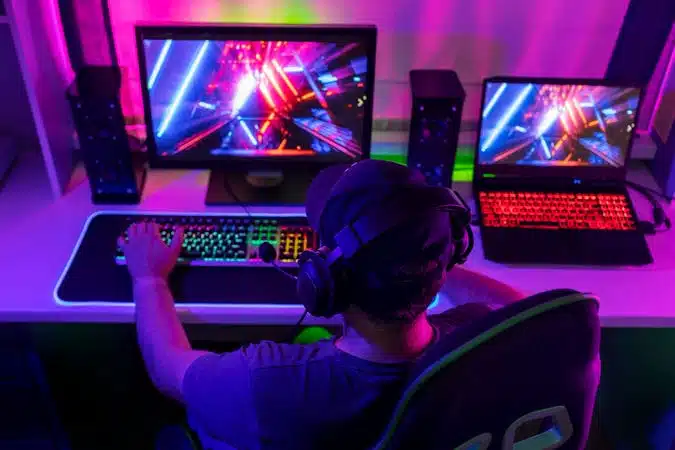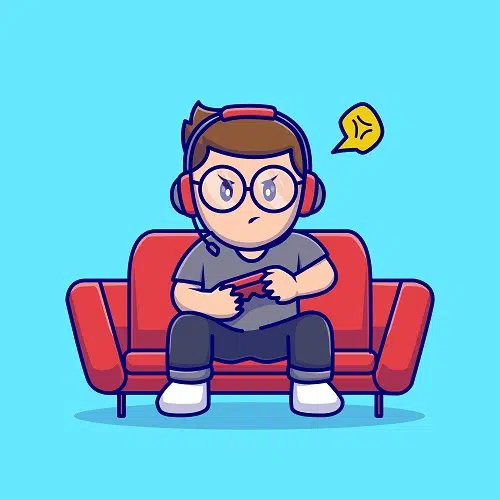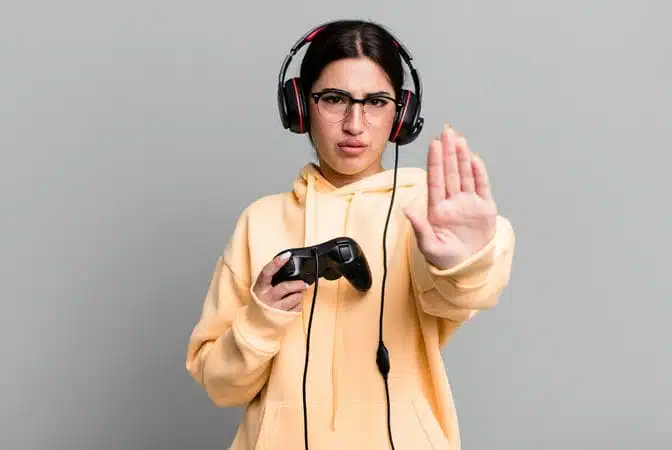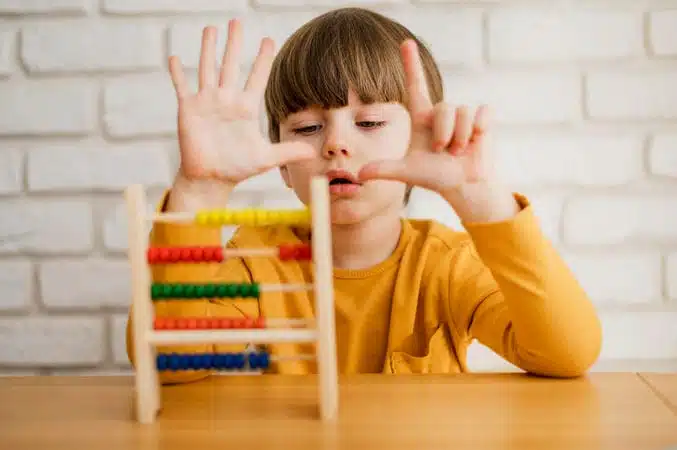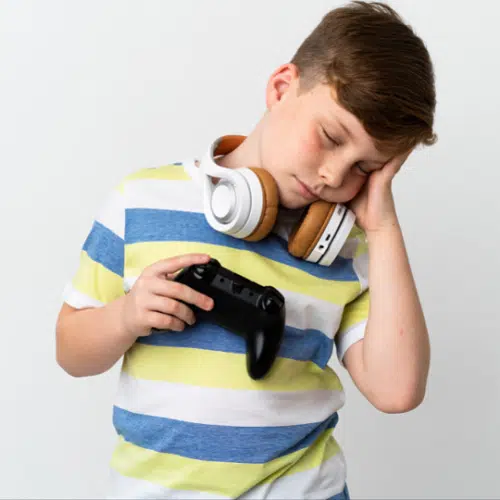We all want what is best for our children. These days, it can be hard to tell how much technology is good for our kids and how much of it is bad. Instead of watching kids run around outside on the playground, you can watch kids with their eyes glued to screens, playing on their phones, laptops, PCs, consoles, and so many other devices.
To help parents understand the effects video games have on their child’s brain, it is necessary to put together a list of some of the side effects. Some are more drastic than others, so keep reading to learn how your children’s brains are being changed by games.
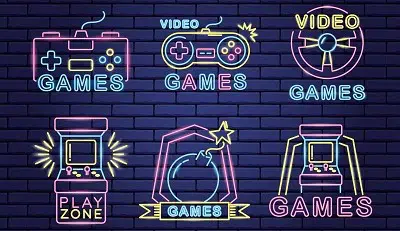
Fight or Flight Response
Playing video games can make your child’s still-developing brain think that it is in danger, sending various chemicals out through the body that creates a mountain of stress and energy. Even if there is no actual danger, the brain and body think they need to be ready to run from predators.
This instinct is leftover from humanity’s days as primitive hunters. Have you ever noticed how your child has a meltdown when you try to end their gaming time? This is because their nervous system is under tremendous stress from the fight or flight response taking over their body.
The rush of chemicals makes it difficult for anyone, but especially children, to calm back down. Our bodies are meant to use the energy from this instinct to run away or through another form of exercise, but video games do not give kids the chance to use up the extra energy.
Additionally, the fight or flight response is not meant to be activated frequently. Since it is generally associated with stress, frequent activation of fight or flight can lead to some of the same problems. While this may not be significant in the short-term, it could be negative over time.
Chronic Stress and Your Child
By frequently gaming, your child puts their body under far more stress than it was meant to handle. This additional stress includes the previously mentioned fight or flight. In addition, chronic stress, or stress that is constantly recurring, can cause a breakdown in the functioning of the frontal lobe of a child’s brain.
The frontal lobe is the part of the brain that controls language, movement, and the skills to control one’s own actions. This part of the brain might not reach its full development until a person is in their twenties. It also plays a major part in systems such as:
- Attention
- Short-term memory
- Motivation
- Decision making
Without a properly or fully developed frontal lobe. Kids can lose the ability to regulate their emotions, pay attention for long periods of time, follow directions, and listen to their body’s basic needs. It also keeps them from developing organizational or creative skills.
Since video games can rewire your child’s frontal lobe, they may never be able to really get a handle on these important traits. Even if things are not as serious as that, there will be downsides associated with the stress and development of a child who plays video games excessively.
Dopamine in the Brain
Playing video games releases a rush of a chemical called dopamine into the brain, a neurotransmitter that, in the right amount, can help us to feel good and rewarded. It is associated with pleasure, so when we do something that we like, dopamine is released, making us feel amazing and reinforcing how much we like something.
Dopamine is regulated in large part due to the frontal lobe, so it can be said to be directly related to chronic stress. Even before taking the breakdown of the frontal lobe into account, dopamine is already an important topic, as it affects many different bodily functions, such as:
- Digestion
- Blood flow
- Memory
- Mood
It even impacts how pain is felt, sleep, motor abilities, and more. In the right amount, dopamine is a good thing, but too much dopamine can cause issues. This chemical is released in the fight or flight response mentioned earlier. Video games can create a prolonged fight or flight response, exposing your child’s brain to a flood of dopamine.
Too much dopamine can lead to conditions such as addiction, mania, and obesity. It can cause your child to have attention issues and be jittery as well. All of this is why many parents say it seems like their kids are “addicted to video games.” The dopamine rush from gaming creates similar conditions in the brain to an addiction to drugs or alcohol.

Impulse Control
Playing video games for long periods of time can cause kids to have less control over their emotions and impulses. It also causes them to ignore important signals from their bodies, like hunger and sleepiness. In part, this is due to the chemicals released by gaming, which make things harder for a child’s developing brain.
One consequence is making it difficult for them to learn how to properly express their emotions, especially extreme ones. Due to this, you might see your child have extreme reactions, especially in anger. The release of neurotransmitters associated with gaming can also basically shut down the prefrontal region of the brain, which controls:
- Attention
- Anticipation
- Emotions
- Impulse control
- The ability to understand and predict consequences
While some of these things have been mentioned previously, it worsens when talking about impulse control. The inhibition of this part of the brain is how your kids can sit down for hours at a time in front of a video game and ignore the cues their body is sending them. They might not even recognize that their body wants food or sleep.
Loss of impulse control can lead to your kids having more temper tantrums. It can even lead to them becoming physically destructive. This loss of control applies to small children and teens alike, which can be frightening and detrimental to their development. It might even lead to overall unreasonableness, considering what it inhibits.
Losing Sleep
One of the most prominent effects of screen time on humans of any age is how it changes sleep patterns. The light coming from our screens at all hours of the day keeps our bodies from being able to wind down at night, so we stay awake more. There is also the previously mentioned issue of not realizing you need sleep due to gaming.
Not being able to sleep can affect learning and mood, even impacting the development of a child’s body. Even if they can fall asleep, playing video games before bed can affect the quality of sleep kids get. A study published by Sleep Science found that playing video games reduces the time kids spend in certain cycles of sleep, namely:
- REM Sleep
- Slow-Wave Sleep
REM, or random eye movement, sleep, is when the brain dreams. Losing this kind of sleep can affect brain development, memory, mood, and learning. Slow-Wave Sleep, which is also called deep sleep, is when the brain releases growth hormones. Losing this kind of sleep can affect physical development. Also, both impact overall rest.
By playing video games before bed, kids are impacting their day to day life and their future growth. After all, no matter how sleep is disrupted, it means less recovery that is vital for every aspect of life. Moreover, gaming often means sleeping fewer hours as well, making it doubly destructive.

Social Effects
When your kid sits in front of a screen all day, it may be hard to get two words out of them about their day. While some games do have social aspects, where people can connect all over the world and play together. However, this kind of interaction is in no way a replacement for talking to someone face-to-face.
You may also find that when you do get to talk to your gamer child, all that they know how to talk about is their game of choice. If this is the case, it makes it harder for you and others to relate to your child. It also makes it harder for your child to relate to the real world. After all, the online social world is far different from reality.
By preventing kids of all ages from learning appropriate social skills, video gaming will make it that much more difficult in the long run for kids to create healthy relationships with friends, family, and significant others. It can also skew expectations of what a healthy relationship entails due to the nature of online friendships and social circles.
Your child might even start to feel like a social outcast or isolated in the real world. Online, they may find success, popularity, followers, and friends, which is how gaming draws them in even deeper. They will want to remain in an online world where they are well-liked instead of functioning offline alone.

Attention and Learning
In small amounts, playing video games can help humans learn how to strategize, multitask, and take in information. However, with the way many kids play video games for an extended period of time, their brains will overlearn these skills and lose other important skills, like being able to focus on just one thing at a time.
“Practice makes perfect,” as the saying goes. By constantly practicing video games, a child’s brain may grow too used to multitasking. Their brain will need to constantly switch around from topic to topic, which will make it even more difficult in the long run for your child to efficiently learn in the classroom or a college lecture.
Additionally, there is a more direct effect on attention and learning. Attention can be impacted due to the child wanting to return home to play the game or because they are only thinking about games. This can impact not only their overall attention but their motivation to pay attention to the things around them as well, school or otherwise.
Moreover, the same can happen with learning. Not only will they not pay attention in class, but once they arrive at home, they will pay more attention to their games than they will their homework. They trade the long-term benefit of an education, which children have problems understanding at all, for the immediate reward of games.
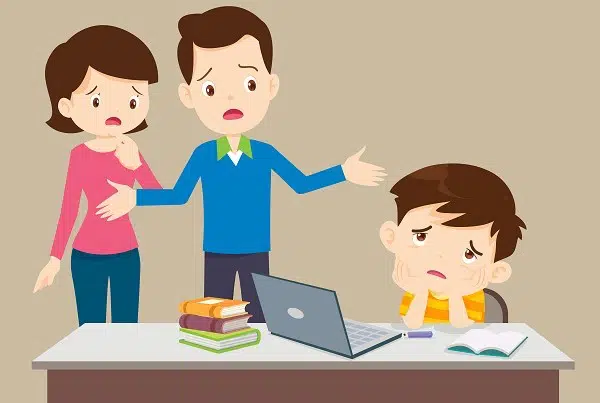
Aggression and Violent Video Games
While there is no concrete evidence linking violent video games to people committing violent crimes, parents have a right to be concerned. There are several different academic studies showing that playing violent games can lead to more aggressive behavior and a decrease in compassionate behaviors.
If your child is constantly playing violent games, their brain is constantly learning about violence and aggression in the virtual world. It can be hard for it to find the difference between the online world and the offline world, which can lead to:
- Increased aggression
- Behavioral issues
- Desensitization
A study published by the National Academy of Sciences found that children who played violent video games often were two times more likely to be sent to their school’s office to be disciplined than other students. By repeatedly practicing aggression and violence online, children end up showing aggression and misbehavior in real life.
Additionally, children who play violent video games begin to grow desensitized to such behavior. While an act of violence may be seen as strange or wrong to a child who does not play video games, the same might not be true of a child playing violent games.

Risk of Obesity
It is well-known that there is an epidemic of obesity in America and America’s children. While this problem cannot be entirely blamed on video games, anything that has our children sitting for hours and hours every day cannot be good for their long-term health. It is also a negative when it comes to a proper active mindset.
Every minute spent inside sitting at a computer or TV playing a game is another minute a child is not spending outside in the fresh air. Kids are meant to be running around outside, climbing trees, and swinging from monkey bars. Regular exercise can also improve your child’s mood and tire them out so they can get a good night’s sleep.
Video games might have their place, even being a decent reward or way to spend a rainy day, but they can be destructive for a child. Regular gaming promotes inactivity, and it also usually means snacking and caffeinated beverages. While this may not be a result of video games themselves, it is part of the culture. Along with inactivity, it is bad.

Risk of Dementia
Violent video games packed with action not only affect your child’s brain now, but they can also have significant impacts on their brain later in life. Scientists in Canada found that people who usually play action video games lose grey matter in their brains.
Grey matter is the exterior part of the brain containing millions of nerve cells packed together. It is mainly responsible for information processing, especially information coming from the five senses. While this affects many people and does not necessarily lead to dementia, it is a worrying sign.
Long-term gamers who play action games have been shown to have less grey matter in certain areas of their brain. As mentioned, this puts them at high risk of brain issues like dementia, but it can also lead to depression, schizophrenia, and post-traumatic stress disorder.
Video Game Addiction
While addiction to video gaming is not a professional diagnosis yet, many doctors and scientists agree that video gaming can produce responses in the brain similar to that of alcoholics and drug addicts.
Addiction can develop when the brain thinks that it is being rewarded, so it releases dopamine and serotonin, making the whole body feel good. In moderation, these chemicals are good because they are connected to happiness and enjoyment. However, when experienced in excess, they create a feeling of loss when they go away.
Video games reward children, and by playing them constantly, they will be receiving many rewards. Therefore, their brains will be full of dopamine. When they are not gaming, they will find it harder to feel rewarded and release dopamine.
Eventually, your child’s brain will need more and more stimulation to produce dopamine, which they will only be able to get from video games. When this happens, it leads to even more dependence. Breaking this cycle early is important and will help your child in the long run.
A Note About Addiction
It is important to note that video game addiction is different from the other forms of addiction mentioned. While dopamine and the constant rewards from video games can cause a child to develop some form of dependence, there is no true addictive property to video games themselves.
Therefore, if your child seems to be suffering from an addiction to video games, you should heavily consider pushing them towards another rewarding activity. You can also impose limits, which will make it easier to control all of the negative aspects of gaming, especially those dealing with the brain.






